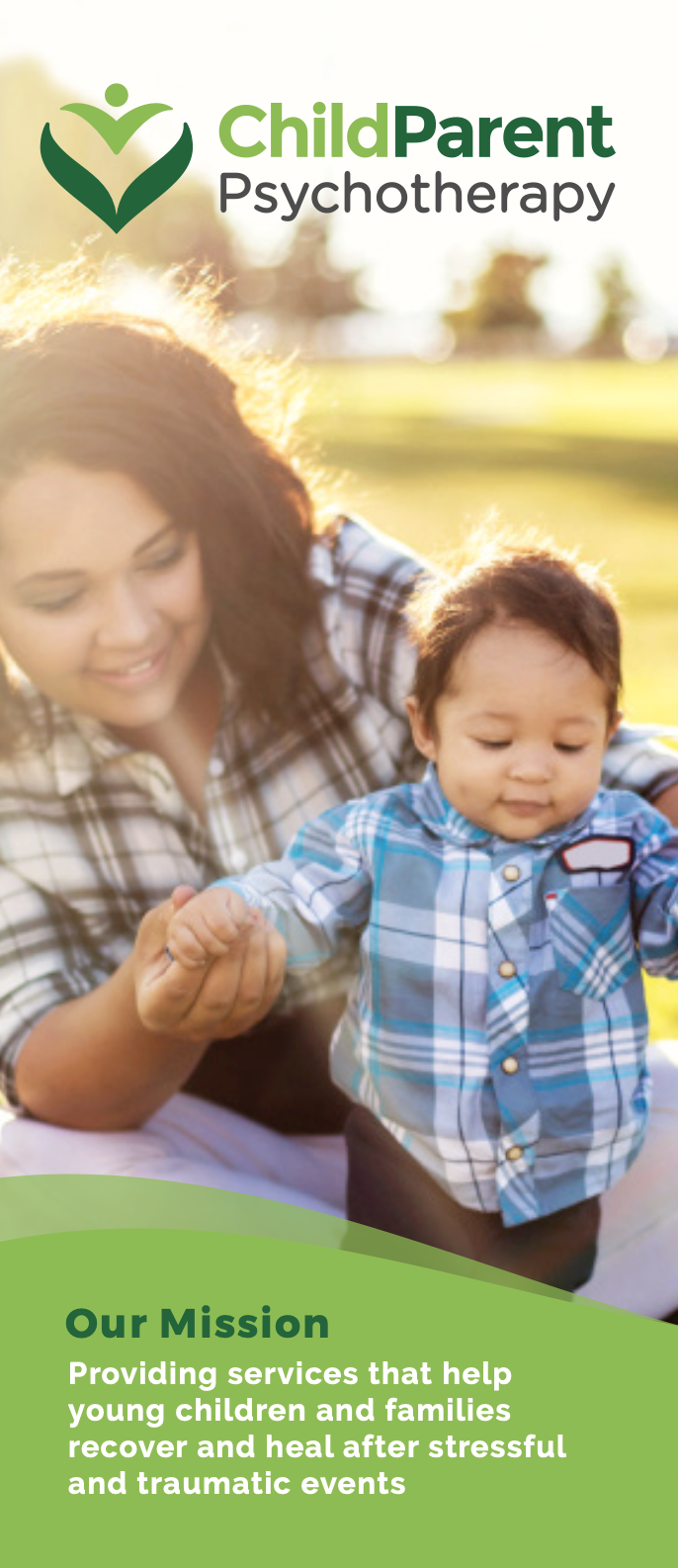
What is Child-Parent Psychotherapy (CPP)?
Child-Parent Psychotherapy (CPP) is an evidence-based, trauma-informed, and relationship-based psychotherapy treatment for children ages birth to six who have experienced trauma and/or are experiencing emotional, behavior, attachment, and/or mental health problems. Services are provided in the context of the children’s primary caregiving relationship(s), and aim to strengthen these relationships to promote safety, healing, emotional regulation, mental health, and return to a normal developmental trajectory.
The CPP therapist partners with the child’s caregivers to recognize and support family strengths and address challenges while honoring family and cultural values.
CPP was developed by Alicia Lieberman, PhD; Patricia Van Horn, PhD; and Chandra Ghosh-Ippen, PhD at the Child Trauma Research Program at the University of California, San Francisco.
CPP Treatment Objectives
In CPP, the therapist supports and holds in mind the experiences and history of both child and parent as they work with the dyad to address presenting concerns, traumatic or stressful experiences, and often the impact of intergenerational trauma.
- Enhance safety
- Strengthen family relationships
- Enhance affect regulation
- Enhance understanding of the meaning of behavior
- Normalize the traumatic response
- Facilitate the co-creation of narratives to help make meaning of traumatic and/or stressful experiences, as well as protective factors
- Help differentiate between the then and now
- Promote normative development
- Help the family put the traumatic experience in perspective
Looking for a CPP Provider?
National CPP Provider Roster: https://childtrauma.ucsf.edu/cpp-provider-roster
The National CPP Provider Roster is held by the Child Trauma Research Program at the University of California, San Francisco

